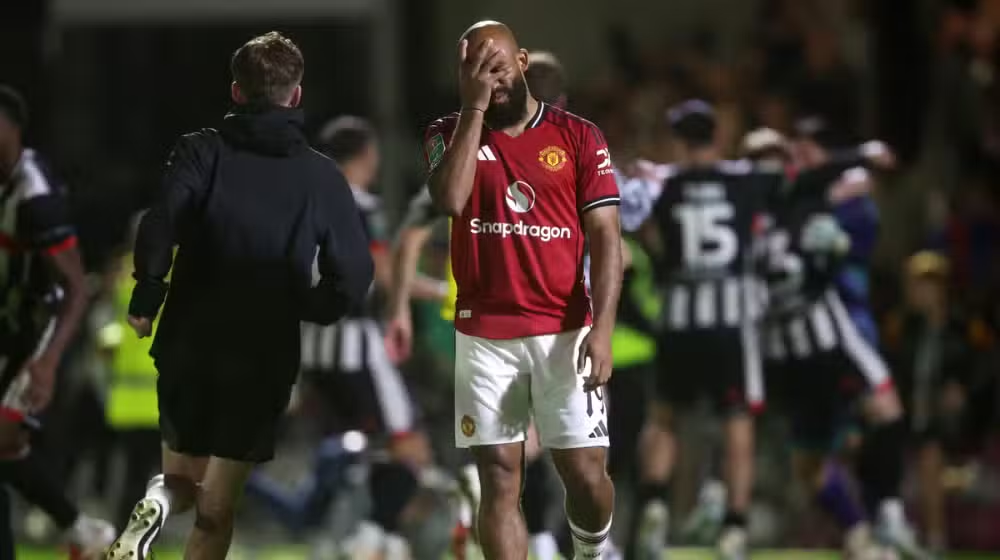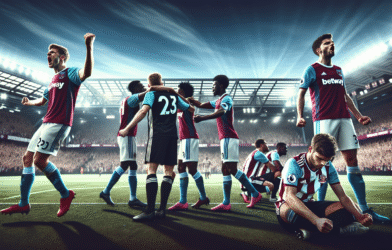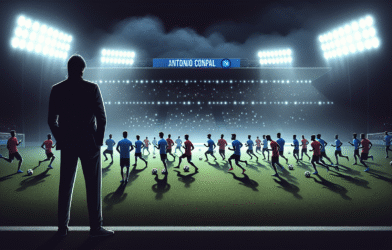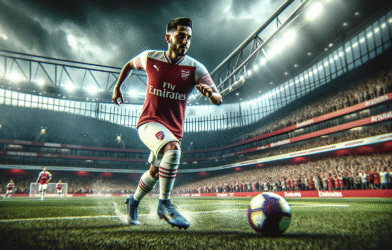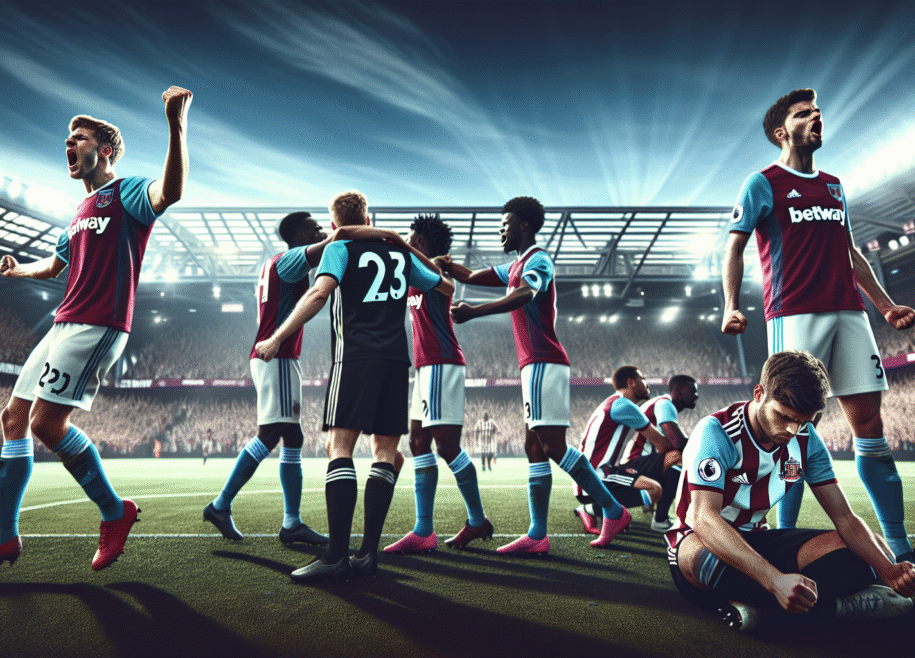Subtotal $0.00
Grimsby beating Manchester United cup upset: A knockout classic
In a moment that felt pulled from a fairytale playbook, Grimsby Town’s shock victory over Manchester United crystallised the enduring romance of knockout football. The result, achieved in the high-noon intensity of a single tie rather than a grueling two-legged saga, has re-ignited conversations about the power of underdogs, the fragility of footballing hierarchies, and the way one game can alter the course of a season. Grimsby beating Manchester United cup upset is not merely a scalp; it is a marker in a broader narrative that sport fans have been chasing for decades—a reminder that in cup football, history can be rewritten in 90 minutes, and the public imagination can swing on the hinge of a moment.
The BBC Sport feature cited in the brief is a reminder that the romance of the cup lives inside the margins of statistics. It insists that the single-elimination format, with its do-or-die urgency, retains the power to reframe a club’s status, influence its finances, and inject a jolt of euphoria into communities whose teams often operate with far fewer resources. Grimsby beating Manchester United cup upset becomes a case study in how narratives matter as much as results in football’s wider ecosystem. When a lower-league club overcomes a giant, the reverberations touch everything from morale to recruitment, sponsorship, and the very way supporters perceive the potential of their squad.
Grimsby Town’s win should be understood within a continuum of cup shocks that stretch back through the annals of both the FA Cup and the EFL Cup. It sits alongside historic upsets that have altered trajectories—where a single result forced a reevaluation of who can compete with the financial and talent advantages enjoyed by Premier League clubs. These upsets have sometimes been treated as isolated curiosities, but the broader story is that cup ties cultivate a unique kind of momentum. A victory in a knockout setting can catalyse a club’s identity, galvanize a fanbase, and even alter perceptions in the boardroom about how to approach player development and transfers. Grimsby beating Manchester United cup upset, in this sense, is part of a larger dialogue about how the sport rewards resilience, organization, and nerve more often than it rewards wealth alone.
What makes this particular upset so potent is not simply the destination—the victory—but the journey there. Manchester United, a club whose matchday philosophy often blends the pursuit of immediate success with the practical calculus of squad management, opted for a balance between rotation and rotation risk. The decision to field a slightly adjusted lineup in a high-stakes cup tie is a familiar one at the top levels: protect squad depth for league obligations while still trying to secure progression. The narrative around Grimsby beating Manchester United cup upset thus also raises questions about the delicate balancing act that heavyweight clubs perform in cup competitions. The psychology of selection, the division of senior and fringe players, and the weight of expectation all converge in these matches and influence how the game unfolds on the day.
To appreciate the significance of Grimsby beating Manchester United cup upset, it helps to consider the broader arc of cup history. Cup ties, by their design, reward preparation, tactical flexibility, and the ability to adjust to an opponent’s plan in real time. The unpredictability of a single game means that even the most rigorous scouting and preparation can be undermined by a moment of inspiration, luck, or a slip in concentration. The Grimsby victory illustrates how a club from a smaller resource pool can harness organisation, discipline, and crowd energy to level the playing field. It is a vivid manifestation of the principle that in knockout football, outcomes are never guaranteed, and the favorites do not always win by default. This is the public-facing argument for why the magic of the cup endures—the stage is set for drama, and the drama is not bound by the size of the wallet or the history of the club alone.
Historical references aside, the human element remains central. Grimsby beating Manchester United cup upset resonates because it reframes the story around the players and supporters who live the experience. For Grimsby’s squad, a single result can alter perceptions about capacity and potential. For the fans, the victory becomes a shared memory that crosses the boundaries of the ordinary football calendar, seeding hope for the remainder of the season and perhaps beyond. For supporters of a club with limited resources, cup success can be a lifeline—boosting season-ticket renewals, attracting attention from scouts and sponsors, and validating the hard work invested in the academy and development pathways. The emotional payoff is tangible, a reminder that in football, belief can translate into tangible outcomes, even when budgets and facilities lag behind those of giants.
Contextualizing the upset within the grand history of the cup
The sport’s tape records countless examples of giants being toppled in cup competition, with Sir Alex Ferguson himself often reminding the world that even the most decorated managers face the vulnerability that cup ties bring. Those precedents aren’t merely anecdotal; they are the data points that build the mythos of the sport. Grimsby beating Manchester United cup upset sits on a shelf of memorable shocks that show how the knockout format punishes complacency and rewards situational mastery. The single-elimination format is unforgiving: a misstep, a moment of brilliance by a livewire young talent, or a tactical tweak from a visiting manager can alter the course of a game and, with it, a club’s season. These are the moments that feed post-match discussions, late-night radio debates, and the social media ecosystems that amplify underdog stories into national conversations.
The Manchester United side, for its part, faced a familiar dilemma: the tension between safeguarding a season’s broader ambitions and pursuing cup glory with full commitment. The decision to field a rotated or partly rotated squad is not unique to United; it is a common theme among heavyweights who navigate congested fixtures, international commitments, and the risk of fatigue. What matters is how a club responds to such pressure when the result hinges on a single match. Grimsby beating Manchester United cup upset thus offers a case study in the psychology of knockout competition, the importance of focus during the hour-and-a-half that decides progression, and the way a club’s supporters interpret a performance that defies conventional expectations.
The mechanics of the upset: tactics, tempo, and mental resolve
Beyond the headlines, the tactical heartbeat of Grimsby beating Manchester United cup upset reveals a story about preparation meeting improvisation. The visitors’ plan typically hinges on compact defensive shape, disciplined transition play, and the ability to exploit set-piece opportunities or counter-attacking openings when the opponent commits bodies forward. Grimsby’s approach, crafted in the weeks leading up to the tie, would have relied on the discipline of the back line, the leadership of a commanding goalkeeper, and the energy of a midfield unit that could close down space and force turnovers. On the day, a few decisive moments—wins in the middle of the park, timely blocks, or a clinical finish—translate into a victory that looks deceptively straightforward in the final scoreline but is the result of sustained effort and preparation meeting opportunity.
From Manchester United’s perspective, the match offers a reminder that top clubs must treat every knockout tie with a degree of ruthlessness and strategic clarity. The tension between preserving squad depth and pursuing a trophy is not simply theoretical. It unfolds in real time as players adjust to tempo changes, physical fatigue, and the psychological pressure of a potential historic upset. Grimsby beating Manchester United cup upset becomes an instructive example of how even well-structured teams can overlook the small margins that decide a single game, and how a club with less glare can seize the moment when the stars align in its favour.
Impact on Grimsby and the broader football ecosystem
Grimsby Town’s victory carries implications beyond a single-match triumph. For the club itself, the win could catalyse a broader recognition of its talent pool and its potential to punch above its weight class. It can stimulate interest from scouts, attract sponsorships, and inject fresh energy into youth development programs. For supporters, the result is a rejuvenation of the club’s narrative, a sense that their team belongs in conversations that typically reserve the spotlight for the Premier League’s richest outfits. The social and economic ripple effects can extend into the near term, influencing matchday attendance, merchandise sales, and the willingness of local businesses to engage with the club as a community cornerstone.
Moreover, the upset holds significance for the public perception of fairness in the sport. While we all accept that football is a competition with millions of moving parts, upsets like Grimsby beating Manchester United cup upset remind audiences that the sport remains unpredictable, and that the idea of “guaranteed outcomes” in football is a fiction that only exists in the minds of those who have never witnessed a cup tie shoot the lights out. Supporters of underdog clubs find renewed confidence in the possibility that their own sides can craft moments of national significance, and that a single, well-executed performance can yield a lasting imprint on a club’s history and the memories of its fans.
What this means for the future of Grimsby and similar clubs
The immediate aftermath of Grimsby beating Manchester United cup upset is a mixture of relief, excitement, and strategic recalibration. The club’s leadership will be weighing how to sustain momentum: investing wisely in squad depth, continuing to nurture academy pathways, and leveraging new attention to attract players who might have previously viewed Grimsby as a step too far. For players who performed against the odds, the experience can be transformative—instilling belief, raising their market value, and creating a platform that could accelerate their careers. For supporters, the memory of this cup upset transcends the scoreboard; it becomes part of the club’s identity and a source of inspiration for future generations of fans and players alike.
In a broader sense, cup upsets like Grimsby beating Manchester United cup upset contribute to a more dynamic ecosystem in European football. They remind everyone that a single match can unlock opportunities, shape careers, and modify the competitive landscape. With every cup round, there is the potential to rewrite the script, to transform a squad’s perception within its league, and to reposition a club within the public imagination. The narrative is not simply about the result; it is about the possibility embedded in each tie—the possibility that anything can happen when the ball is at stake, when the crowd is in full voice, and when a team’s collective spirit is greater than the sum of its parts.
Key takeaways and the enduring appeal of cup football
- Knockout football rewards preparation, discipline, and opportunism in equal measure.
- A single upset can alter a club’s finances, morale, and long-term strategy.
- The public narrative around a club is often shaped as much by cup shocks as by league performance.
- Underdog stories sustain engagement among fans, sponsors, and local communities.
- Cup ties continue to prove that giants can stumble and memory-making moments can redefine a season.
Final reflections
Grimsby beating Manchester United cup upset stands as a testament to the enduring power of knockout football to surprise, delight, and reframe the sport’s landscape. It is a reminder that history is not a fixed ledger but a living narrative shaped by the next result. For Grimsby, the win is not simply a one-off celebration; it is a gateway to a broader recognition of what the club can achieve with the right mix of talent, organization, and community support. For football fans everywhere, it reaffirms why the cup remains one of the most beloved competitions in world sport—the stage where underdogs thrive, legends are born, and the sport’s most cherished dreams come vividly to life. Grimsby beating Manchester United cup upset will be remembered not just for the moment of triumph, but for the way it rekindles belief in the extraordinary power of football to rewrite the history books.





